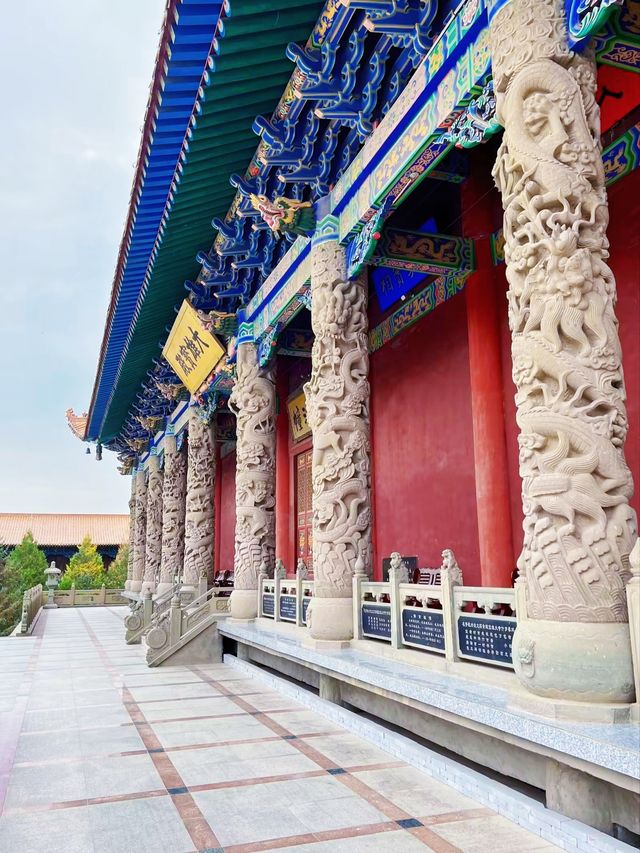App
Customer Support
NZD
Find Bookings
Popular Trip Moments
Kumarajiva Temple | Trip to Wuwei, China 🇨🇳 | 7-Day Lanzhou Itinerary: Check All the Hot Spots | When you stand at the Wushaoling Mountain Pass, can you feel the vastness of the Han Dynasty? | Langham Oriental Hotel Wuwei: A Hidden Gem, Highly Recommended!!! | May Day Anti-Crowds Travel Guide: 5 Hidden Gems | Explore Tianzhu Tibetan Autonomous County and embark on a soul-stirring journey. | When you come to Wuwei, you must visit the Tianti Mountain Grottoes! It's so beautiful! | Wuwei/The wind on the mountaintop is the roar of warriors | I found a very pleasant homestay in Wuwei | Exploring the secrets of Gansu: Haizang Temple, a quiet journey through thousands of years | I have been to Maya Snow Mountain 888 times, and I have compiled a guide for you to avoid pitfalls | Discover Mati Temple (Cave of the Thousand Buddhas) | Winter Vacation Trip to Lanzhou-Xining-Qinghai Lake Guide | A diary of a solo trip to the Hexi Corridor during the off-season | Hexi Corridor - Lanzhou-Wuwei | Recommended Anji Homestay! Anji·Shanqingju Homestay! | Desert Reservoir (1) | Avoid the Crowds and Explore Wuwei Ancient City on a 5-Day Tour | Cherry Blossom 🌸 trip to Wuwei | Wuwei, the hometown of the Bronze Running Horse | Real encounter with the Deer | 🟤Real-life Dune | A "Sci-fi World" Hidden in the Tengger Desert | 9-Day Jiuquan Tour: A Must-See Itinerary for First-Time Visitors | Tian Ti Mountain Grottoes - A Stunning Legacy of Ancient Art | Wuwei 2-Day Tour: Explore Popular Attractions | Xi'an and Wuwei Free Travel (with guide) | The ancestor of grottoes that has been preserved with great difficulty! | 7-Day Gansu Itinerary: Lanzhou, Wuwei, Zhangye, and More! | Winter Travel in Lanzhou-Jingtai-Badain Jaran Desert: A Complete Guide
Popular Travel Types
Recommended Attractions at Popular Destinations
Bangkok attraction near me | Manila attraction near me | Tokyo attraction near me | Taipei attraction near me | Hong Kong attraction near me | Seoul attraction near me | Kuala Lumpur attraction near me | Los Angeles attraction near me | Shanghai attraction near me | New York attraction near me | Shenzhen attraction near me | Osaka attraction near me | Singapore attraction near me | London attraction near me | Guangzhou attraction near me | San Francisco attraction near me | Beijing attraction near me | Macau attraction near me | Bali attraction near me | Jakarta attraction near me | Paris attraction near me | Ho Chi Minh City attraction near me | Istanbul attraction near me | Phuket attraction near me | Chicago attraction near me | Seattle attraction near me | Toronto attraction near me | Orlando attraction near me | Cebu attraction near me | Chiang Mai attraction near me
Popular Attractions
Rua Do Cunha | Sumtseling Monestery | Monihar Cinema Hall | Xilamuren Prairie | Burj Khalifa | Balagezong Scenic Area | Zushan Mountain Scenic Zone | Chongqing Two Rivers Night Tour | Chengdu Research Base of Giant Panda Breeding | Sunway Lagoon Theme Park | Franz Josef Glacier | Jayalath Cinema | Nantou Ancient City | Waterbom Bali | Shenquan Ecological Tourist Attraction | Komodo Island Tours | Parc des Princes | East Gate Shopping Mall | Shangxiajiu Pedestrian Street | RED HOT & BLUE PATTAYA | Galleria Cavour | Lincoln Park | Thaqwa Masjid | Güzeltepe Park | Miradouro da Ribeira Funda | Biblioteca Pública Municipal "Francisco Mayán" (Casa da Cultura) | Natraj Theatre | Veral Kondeshvar Swayambhu | Otway Sound & Penguin Reserve | Sri Maramma Temple
Popular Restaurants in Wuwei
周记三套车·甘肃名小吃 | 老王家菜锅子(西关店) | 武威金穗大酒店·百姓厨房(黄羊店) | 小龙坎老火锅(武威天健店) | 必胜客(天丰店) | 兄弟烤坊(九中店) | 食为天家味鲜(南关店) | 签上百味串串吧 | 汉明海鲜自助火锅(北关店) | YI NING ZHAI JING PIN SHUAN | BAO LIN NIU ROU CHAO MIAN PIAN BEI GUAN DIAN | Dingruixuanjingpinshuan | Yiningzhaimingdian | 金海盛宴 | 新疆大胡子烤肉城共和街总店 | 不一样砂锅面(明清街店) | 老回民·精品自助火锅烧烤 | 晋茶火锅店 | 牛少爷牛肉炒面片(凉州旗舰店) | 年三十饺子楼(海藏路店) | Heisankaoroucheng | 德克士(步行街店) | 祥和饭庄(杨府街店) | 金大碗牛肉面(浙大店) | 老王三套车 | Chongqing Chicken Hot Pot | 汉明酒楼 | 云翔国际酒店·餐厅 | 马路边边(古浪街店) | He Jixing Mian • Three sets of cars
Popular Ranked Lists
Popular Luxury Hotels Near Korcula | Popular Best Things to Do in Leye | Popular Premium Hotels in Palakkad | Popular Premium Hotels in Sestroretsk | Popular Best Things to Do in Dongtai | Top 4 Best Things to Do in Mohe | Popular Premium Hotels in Durango | Popular Luxury Hotels in Malargue | Top 4 Best Things to Do in Huidong | Popular Best Things to Do in Boluo | Top 5 Best Things to Do in Weinan | Top 10 Local Restaurants in Minsk | Popular Best Things to Do in Yuzhong | Top 18 Local Restaurants in Dunhuang | Top 9 Best Things to Do in Liangshan Prefecture | Popular Luxury Hotels Near East Brunswick | Popular Restaurants for Views & Experiences in Zaandam | Popular Luxury Hotels Near Takeo | Popular Luxury Hotels in Brasilito | Top 4 Best Things to Do in Changzhi | Top 3 Best Things to Do in Sunan | Popular Best Things to Do in Wuzhishan | Top 10 Local Restaurants in Newcastle | Top 3 Best Things to Do in Yuyao | Top 5 Best Things to Do in Zhaotong | Popular Luxury Hotels Near Bridgewater | Popular Premium Hotels in Korcula | Top 3 Best Things to Do in Ziyang | Popular Luxury Hotels Near Sandakan | Popular Local Restaurants in Dongguan
Payment Methods
Our Partners
Copyright © 2025 Trip.com Travel Singapore Pte. Ltd. All rights reserved
Site Operator: Trip.com Travel Singapore Pte. Ltd.
Site Operator: Trip.com Travel Singapore Pte. Ltd.






































